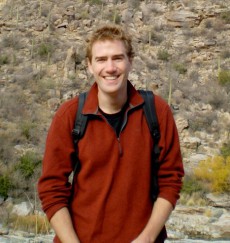Cameron published Frontiers of Science: Imperialism and Natural Knowledge in the Gulf South Borderlands, 1500-1850 with UNC Press for the Omohundro Institute for Early American History and Culture.
Cameron Strang

Ph.D. CandidateDepartment of HistoryUniversity of Texas at Austin
Entangled Knowledge, Expanding Nation: Local Science and the United States Empire in the Southeast Borderlands, 1763-1840
Abstract. This dissertation uses an entangled history perspective to argue that local knowledge in the southeast borderlands—lower Louisiana, Mississippi, and the Floridas—had a major impact on science and expansion in the early United States. Local science in this region was multinational, well established, and very closely aligned with circum-Caribbean networks. As the U.S. worked to incorporate this region, officials and scientific institutions drew on the area’s multinational local science to expand both their knowledge and their nation. This hypothesis challenges Anglo-centric historical narratives that European science and technologies of power followed the American flag across the continent. U.S. officials and scientific institutions did not create the scientific practices used to dominate and profit from the southeast borderlands. They developed them by consulting and incorporating local experts. U.S. science and expansion were not merely national or Anglo-Atlantic developments: both drew on traditions of knowledge and power from the circum-Caribbean. Here is a report of his research as a fellow.
Updates
Ph.D. at the University of Texas in August 2013. He is currently the Margaret Henry Dabney Penick resident scholar at the Smithsonian Institution. His recent article, "Indian Storytelling, Scientific Knowledge, and Poser in the Florida Borderlands" was published in the October 2013 issue of the William and Mary Quarterly.